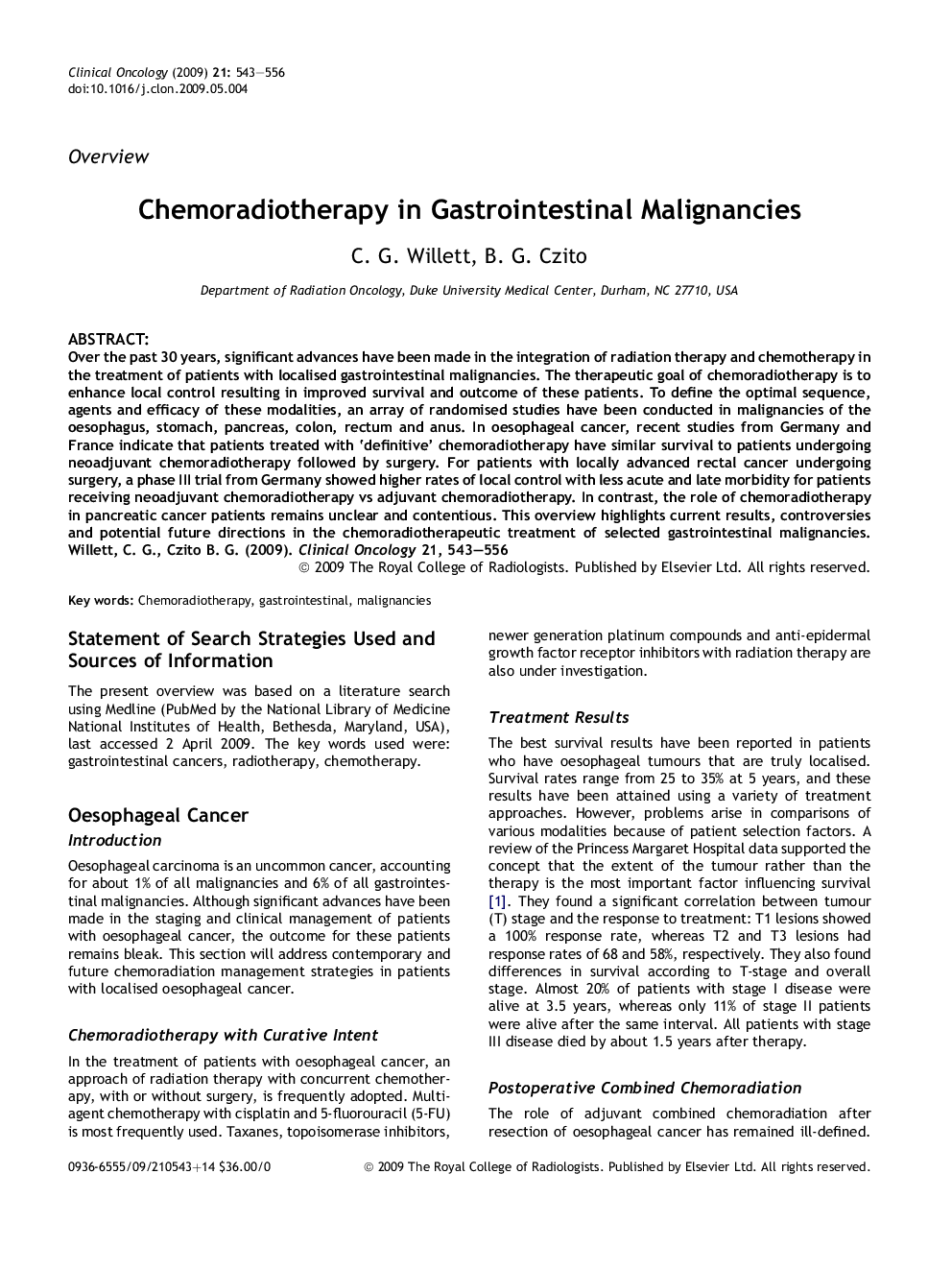| Article ID | Journal | Published Year | Pages | File Type |
|---|---|---|---|---|
| 5699222 | Clinical Oncology | 2009 | 14 Pages |
Abstract
Over the past 30 years, significant advances have been made in the integration of radiation therapy and chemotherapy in the treatment of patients with localised gastrointestinal malignancies. The therapeutic goal of chemoradiotherapy is to enhance local control resulting in improved survival and outcome of these patients. To define the optimal sequence, agents and efficacy of these modalities, an array of randomised studies have been conducted in malignancies of the oesophagus, stomach, pancreas, colon, rectum and anus. In oesophageal cancer, recent studies from Germany and France indicate that patients treated with 'definitive' chemoradiotherapy have similar survival to patients undergoing neoadjuvant chemoradiotherapy followed by surgery. For patients with locally advanced rectal cancer undergoing surgery, a phase III trial from Germany showed higher rates of local control with less acute and late morbidity for patients receiving neoadjuvant chemoradiotherapy vs adjuvant chemoradiotherapy. In contrast, the role of chemoradiotherapy in pancreatic cancer patients remains unclear and contentious. This overview highlights current results, controversies and potential future directions in the chemoradiotherapeutic treatment of selected gastrointestinal malignancies.
Related Topics
Health Sciences
Medicine and Dentistry
Oncology
Authors
C.G. Willett, B.G. Czito,
